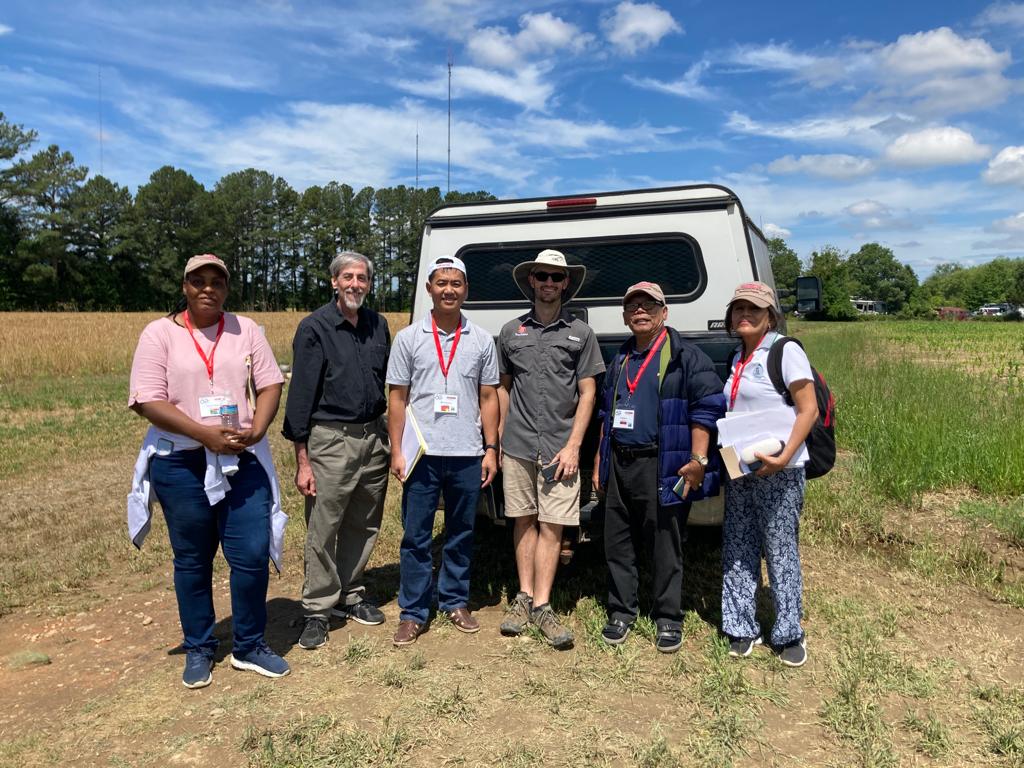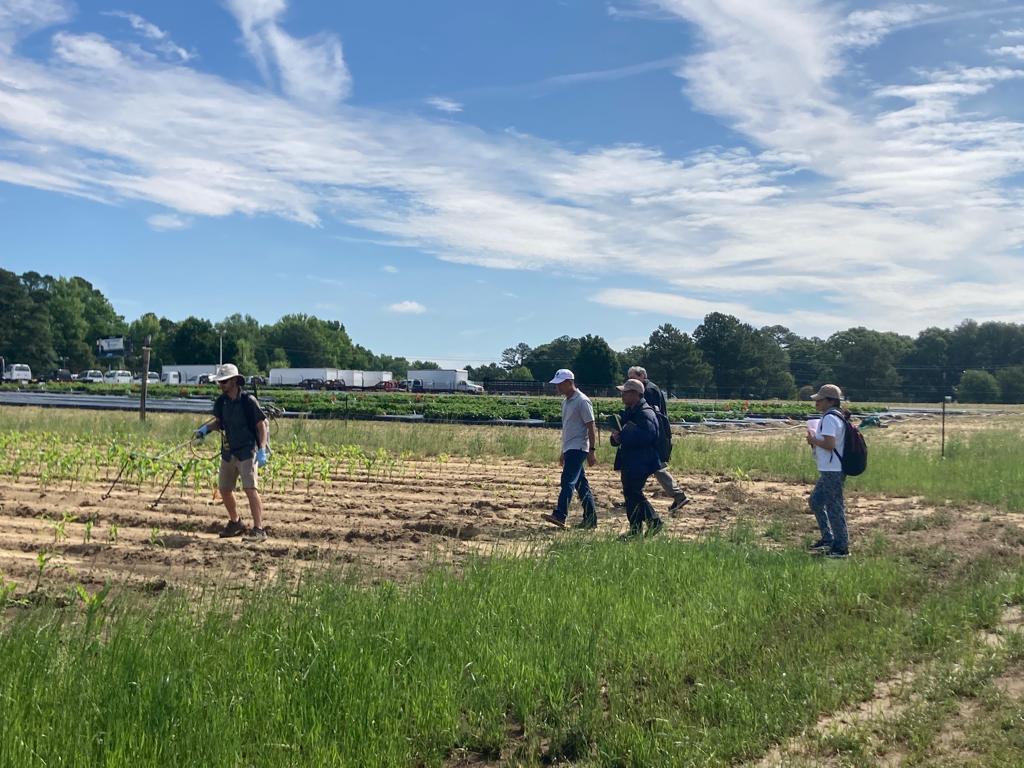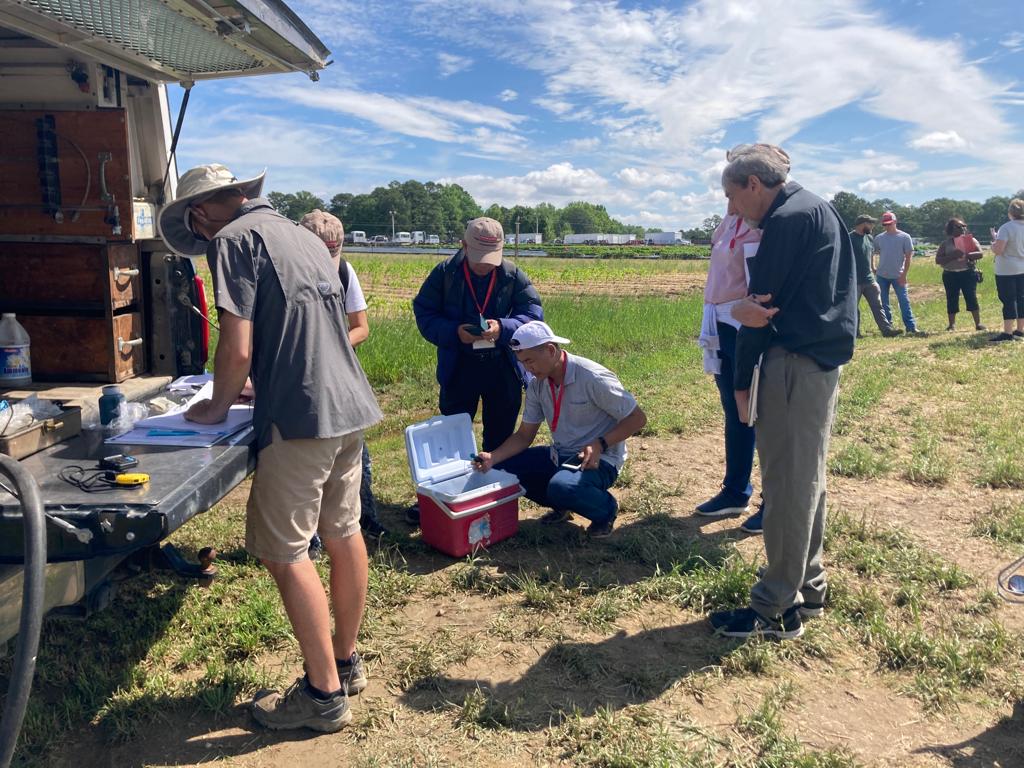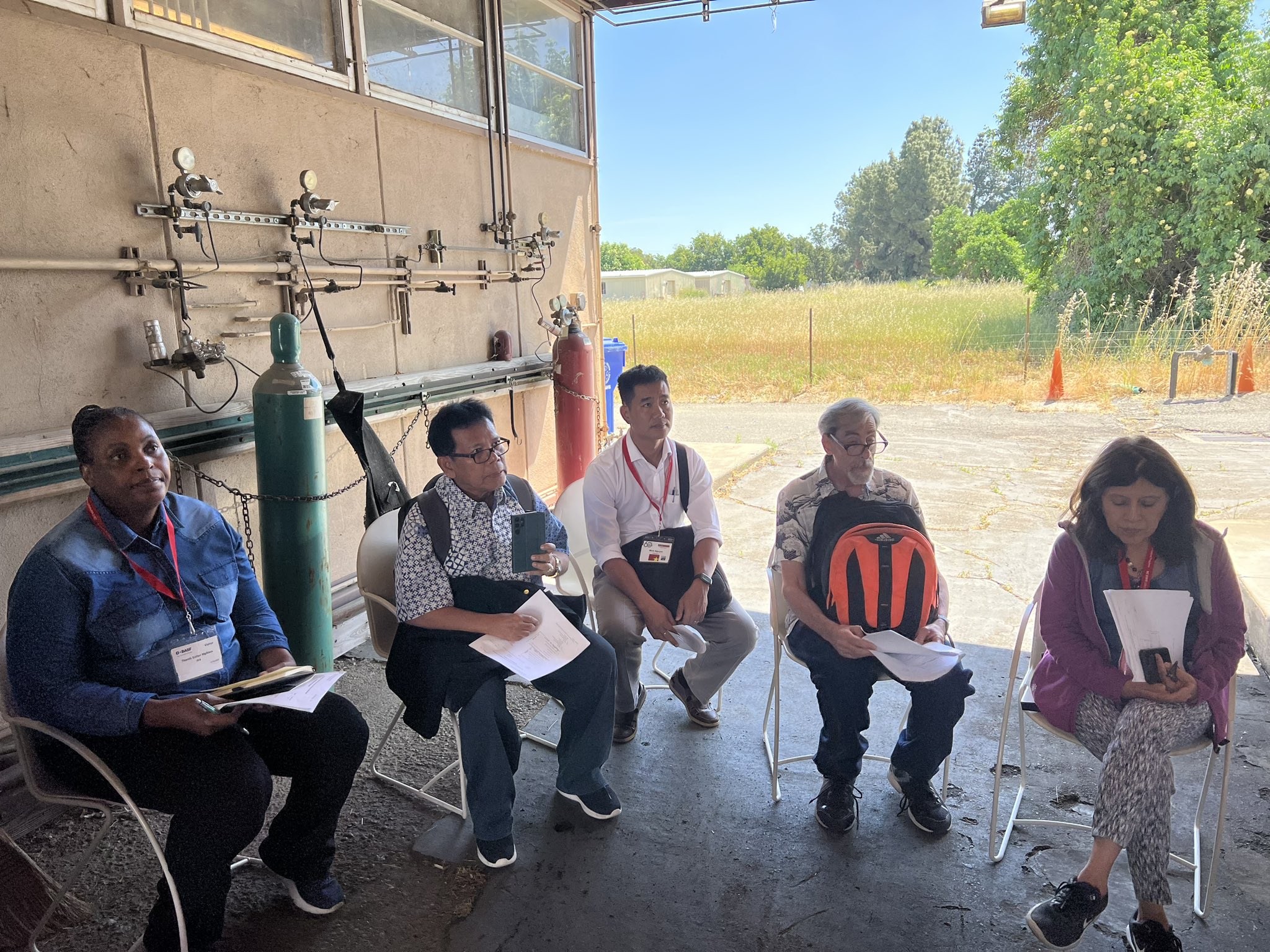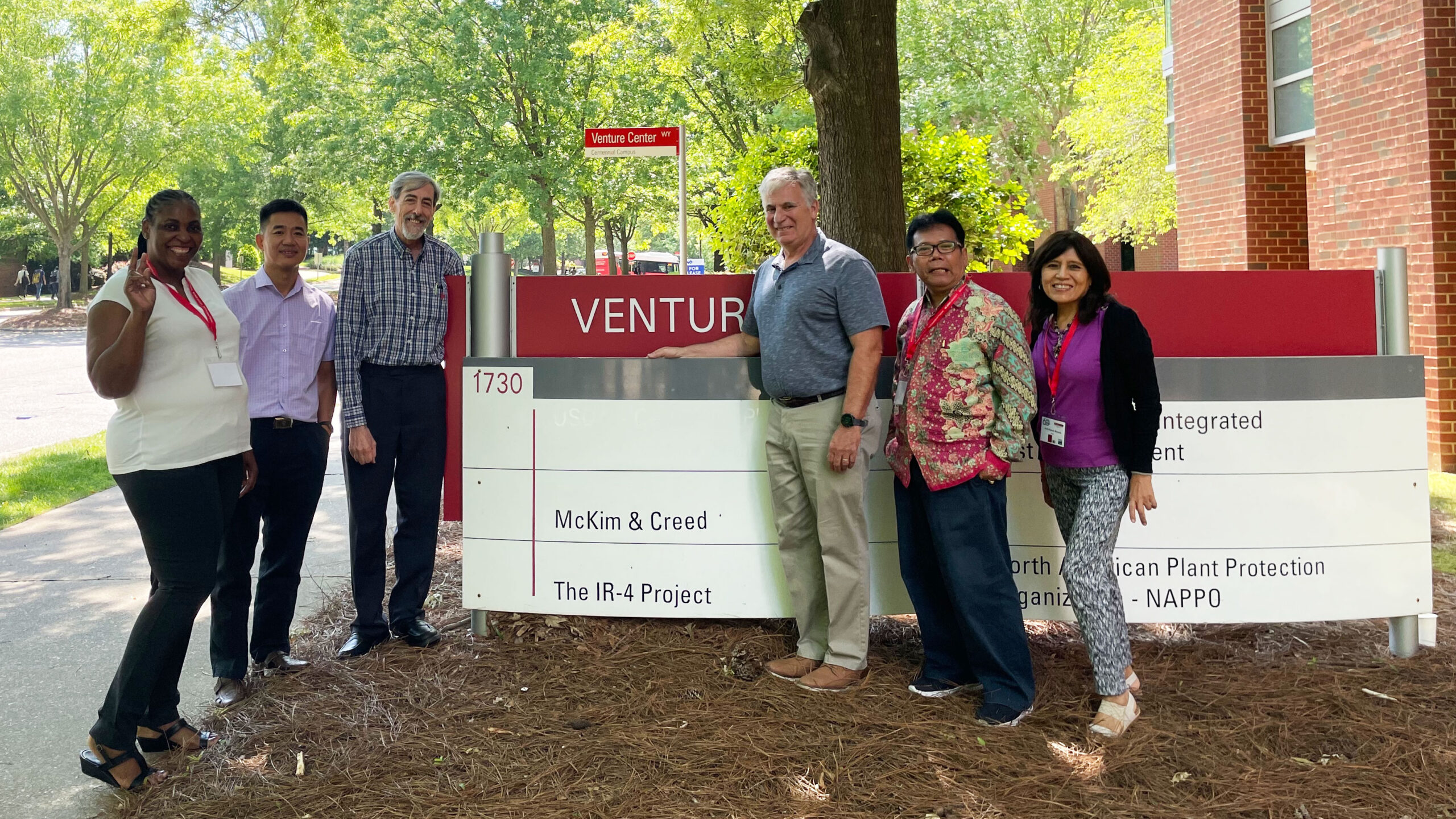
In May, IR-4 hosted the 2023 USDA Foreign Agricultural Service (FAS) IR-4 Project Borlaug Fellows, in partnership with NC State University CALS International Programs.
The FAS Borlaug International Agricultural Science and Technology Fellowship Program promotes food security and economic growth by providing training and collaborative research opportunities to Fellows from developing and middle-income countries. The program honors the contributions of Dr. Norman Borlaug, a land-grant university scientist awarded the Nobel Peace Prize in 1970 for his work on plant breeding, including disease resistance.
The IR-4 Borlaug Fellowship Program was designed to facilitate knowledge sharing and capacity building around maximum residue levels (MRLs), which dictate the highest level of pesticide residue that can persist in or on food products at harvest time. The harmonization of MRLs is a key focus of IR-4’s international work, removing barriers to agricultural trade and helping specialty crop growers worldwide access legal, safe pest management solutions. IR-4’s head of International Capacity Building, Michael Braverman, was instrumental in bringing IR-4’s Borlaug Program to life. The Fellows received extensive training and mentoring from Dr. Braverman, as well as from IR-4’s Executive Director, Jerry Baron.
“The IR-4 Project was privileged to host four incredible Borlaug Fellows to share our expertise about ways to harmonize maximum residue levels of pesticides in specialty crops,” shared Dr. Baron. “This knowledge will help the Borlaug Fellows in their home countries participate in global trade, as well as help their farmers to gain access to the newest generation of crop protection products with favorable human health and environmental impacts.”
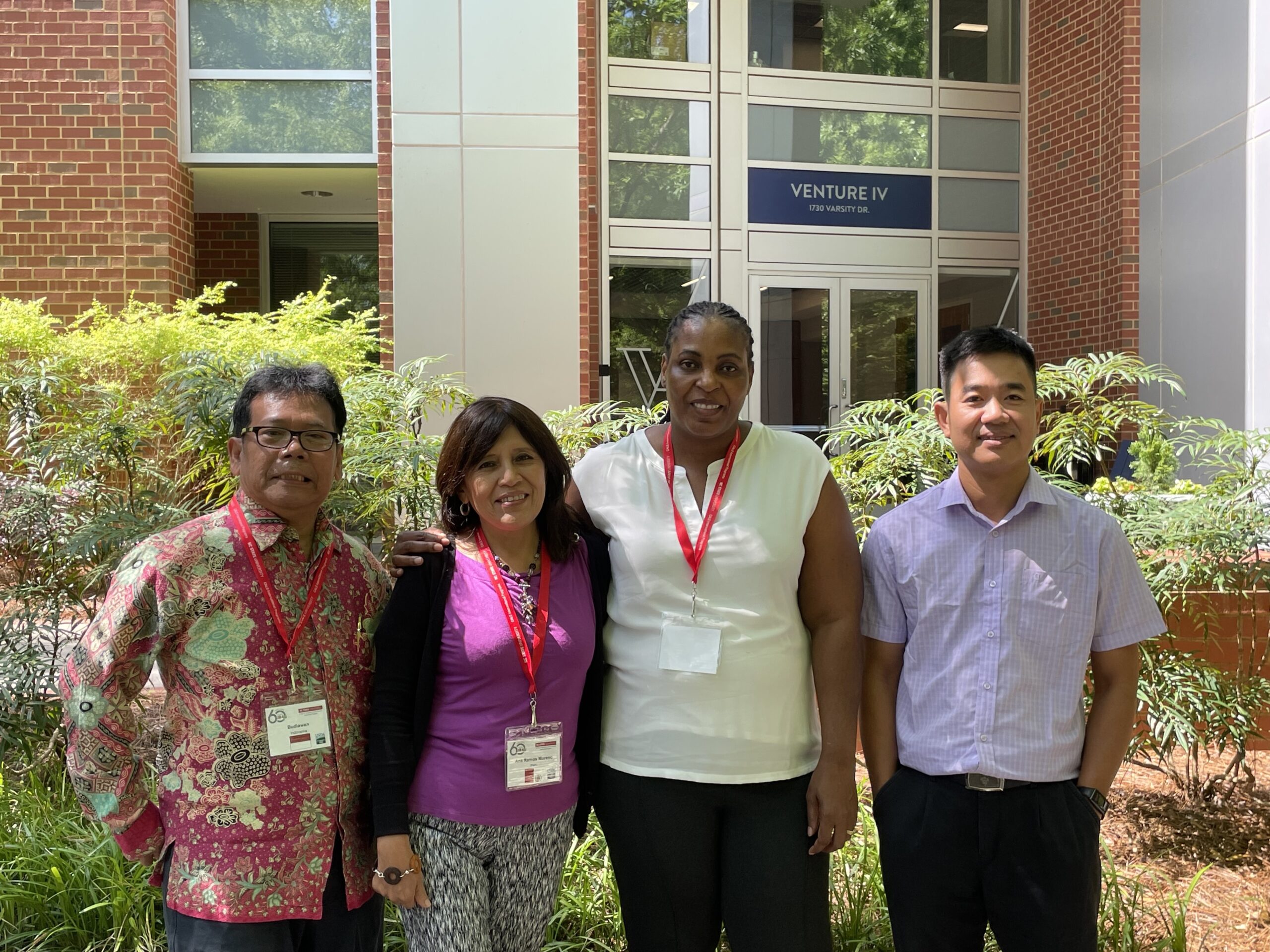
This year’s Fellows hailed from four different countries with unique agriculture and regulatory systems, and brought great depth of experience to share:
BUDIAWAN serves as Vice Dean of Faculty, Mathematics and Natural Sciences at Universitas Indonesia. An expert in Toxicology Chemistry, his research focuses on bioaccumulation and chemical/radioactive exposure effects in humans and the environment. Dr. Budiawan plans to use his Borlaug experience to help guide the Indonesian government towards harmonization with international MRLs, with the goal of improving agricultural productivity, economic development and food security in his home country.
ANA CECILIA RAMOS MORENO is a Chemical Analyst for Servicio Nacional de Sanidad Agraria (SENASA) in her home country, Peru. Ramos Moreno has an extensive background in analytical chemistry as well as environmental and project management. Ramos Moreno sought this Fellowship to learn more about sampling procedures for analyzing MRLs. She plans to bring her knowledge back to the lab she manages and strengthen its training program’s capacity for Codex compliance.
THEMBI MPHIWA joined us from South Africa, where she works as a Test Officer in the Department of Agriculture, Land Reform and Rural Development. A chemist and lab manager focused on food safety and quality assurance, Mphiwa has over 18 years of experience analyzing agricultural products for MRLs for various organizations. As a Borlaug Fellow, Mphiwa aimed to build her understanding of method development and testing of complex pesticides and sample matrices.
MINH NGUYEN is an Analytical Chemist working in residue analysis for the Vietnamese Plant Protection Department. Nguyen has over 15 years of experience analyzing residues in fruits and vegetables, and conducting field trials to support pesticide registration. Through this Fellowship, Nguyen sought to strengthen residue data generation skills. He hopes his work can help Vietnam expand its capacity for establishing MRLs, and expand export opportunities for Vietnamese growers.
The Fellows first joined the IR-4 Headquarters team at North Carolina State University for over a week of knowledge-sharing, networking, and professional development. While in Raleigh, they toured field research sites, saw a mock field application, were trained in Good Laboratory Practices (GLP), learned about US federal agencies and the regulatory process for pesticides, toured a BASF facility, and explored IR-4’s collaborative work with global minor use organizations.
Next, the Fellows traveled to the IR-4 Western Region office and Laboratory at the University of California, Davis. In Davis, the group learned about sample processing and analysis during three days of lab-focused programming led by IR-4 Western Region Director and Analytical Lab Coordinator, Matt Hengel.
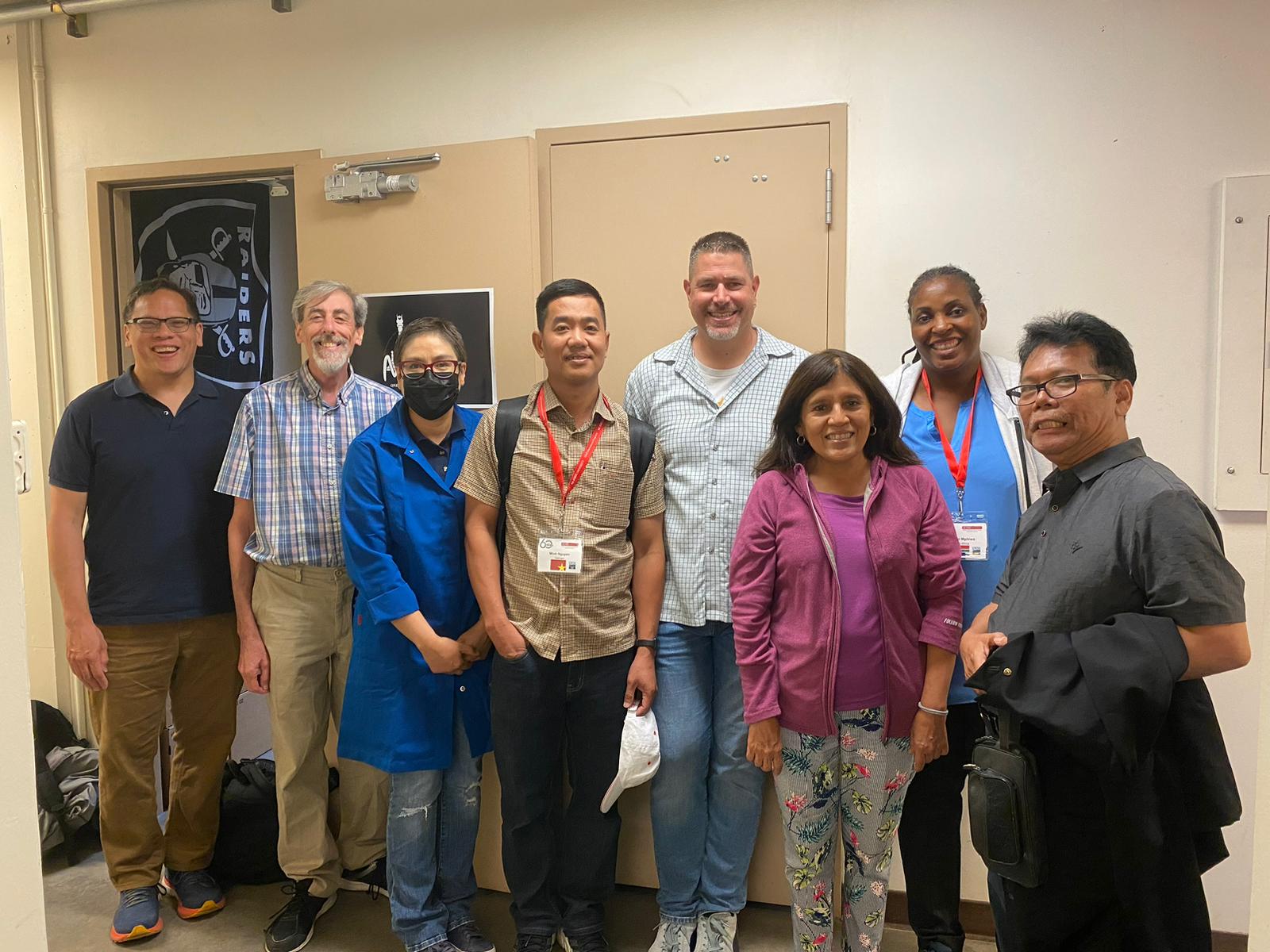
Finally, the Fellows flew to San Diego for the Global MRL Workshop. Two fruitful weeks of Borlaug programming concluded with a diploma ceremony led by Jerry Baron and Michael Braverman.
Ana Cecilia Ramos Moreno, this year’s Fellow from Peru, found great value in the program and looks forward to implementing new practices in her home country. “Having participated in the Borlaug Fellowship program has been an extraordinary experience—very important for my career,” she shared. “I have a great responsibility to develop and implement what I have learned and initiate a new approach to working with pesticides.”
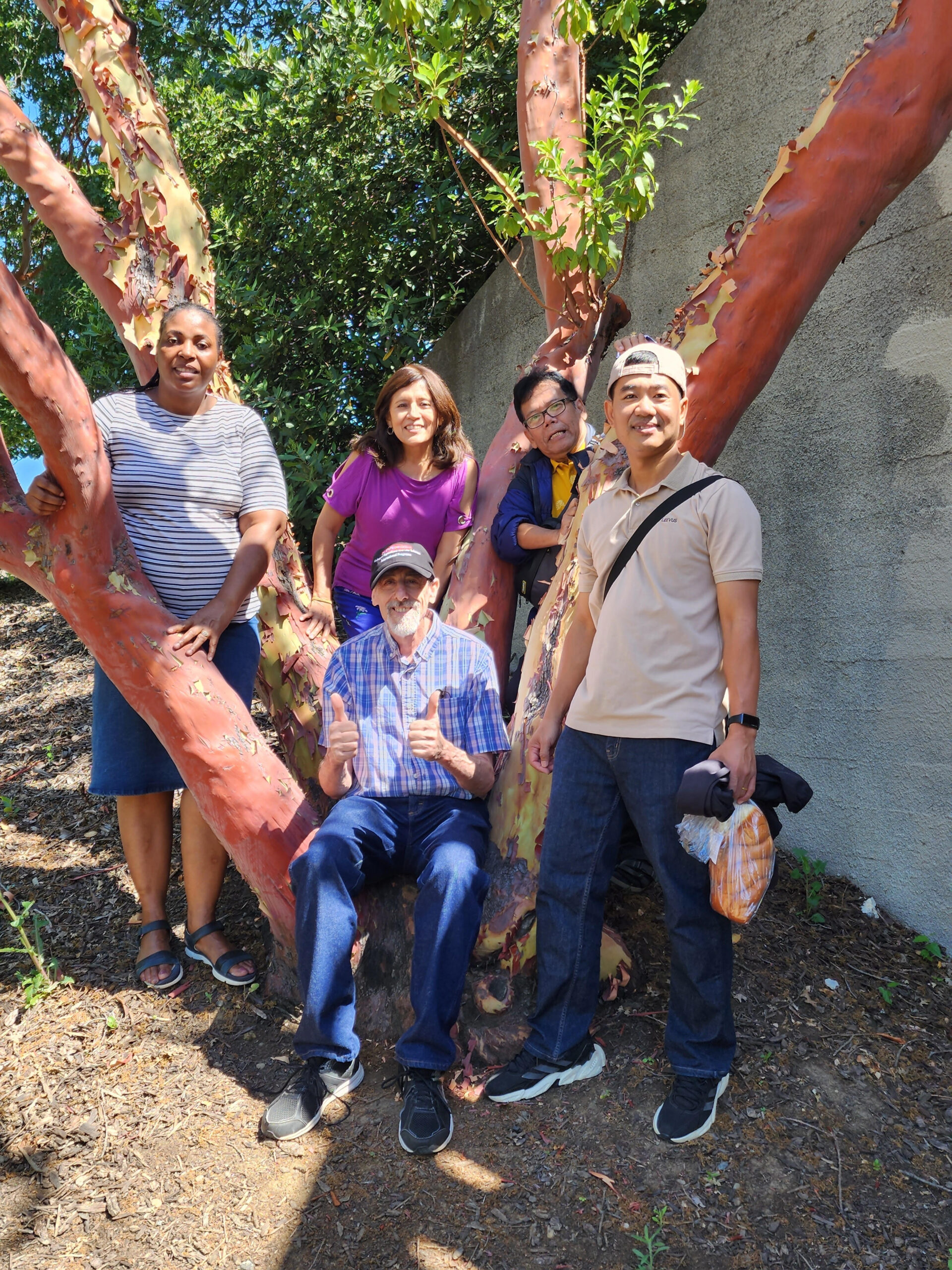
About The IR-4 Project
The mission of the IR-4 Project is to facilitate regulatory approval of sustainable pest management technologies for specialty crops and specialty uses to promote public well-being. By working directly with local crop growers across the country, IR-4 conducts research and develops data necessary for the registration of pest management tools, ensuring that they are safe for use. To learn more, visit our website.

